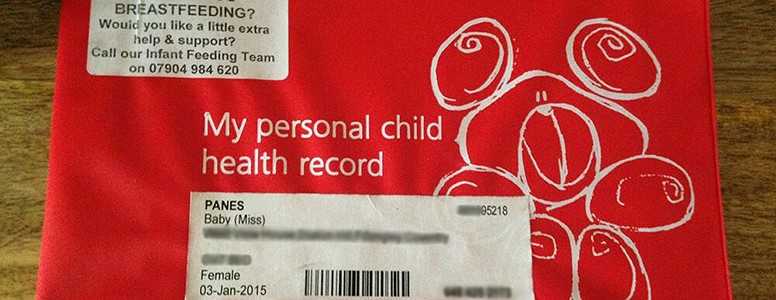A petition has been launched to include the symptoms of type 1 diabetes in the Personal Child Health Record given to new parents by the NHS.
This is also known as the “Red Book”, and is provided when a newborn child is roughly 10 days old. It is intended for use by parents until the child is roughly four years old, and includes information on immunisations, growth charts, screening and routine reviews.
The petitio, set up by Emma Warrington – whose husband and son have type 1 diabetes – calls for the dangers of undiagnosed type 1 to be highlighted to new parents.
In July, five-year-old Kycie Terry died from undiagnosed type 1 diabetes. Her symptoms developed within a few days: first, she complained of a headache, and after being incorrectly diagnosed with strep throat by her doctor, she suffered diabetes ketoacidosis (DKA) and entered a 24-hour coma.
Kycie died seven months later, and Warrington said it was her passing that inspired her to revisit the petition. “I tried the petition a few years ago, but didn’t get very far with it,” Warrington said. “After the tragic passing of Kycie, I decided that I would try again. I am amazed at how it has taken off.
“I’ve spoken to countless families who carried their children into the hospital dying. I think it (type 1 symptoms) needs to be in the book as people just don’t know the signs.”
The symptoms of hyperglycemia – which include exhaustion, migraines and increased thirst – can appear similar to a cold or the flu, especially to parents and family members unfamiliar with diabetes.
A recent study found most parents are unaware of type 1 symptoms in their children, and providing parents with this information could lead to cases of type 1 diabetes being diagnosed before DKA sets in.
In her petitio, Warrington states: “A child is five times more likely to be diagnosed with type 1 diabetes than meningitis, yet the symptoms are not documented in the red baby book that every new parent is given. If left untreated, or if diagnosed late children die of diabetic ketoacidosis, this is FACT.”
If the petition receives 100,000 signatures, it will be considered for debate in the Houses of Parliament. Currently, 4,932 signatures have been made, and a big push is required to reach this target.
Signing the petition will not only improve the quality of lives, but vitally, raise diabetes awareness in the government’s Department of Health.
You can sign the petition here.
What's new on the forum? ⭐️
Get our free newsletters
Stay up to date with the latest news, research and breakthroughs.





